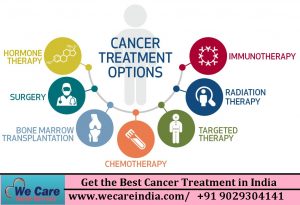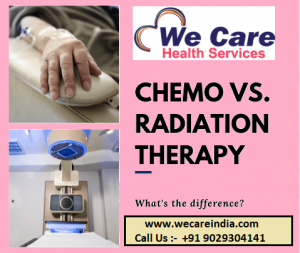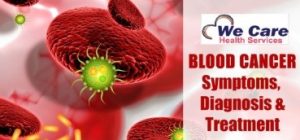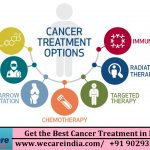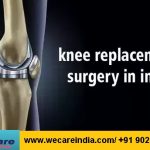 Cancer Treatment in India
Cancer Treatment in India
Cancer Surgery — an operation to repair or remove part of your body to diagnose or treat cancer — remains the foundation of cancer treatment. Your doctor may use cancer surgery to achieve any number of goals, from diagnosing your cancer to treating it to relieving the symptoms it causes. Cancer surgery may be your only treatment, or it may be supplemented with other treatments, such as radiation, chemotherapy, hormone therapy and biological therapy. Contact us for best Cancer Treatment in India.
Cancer Treatment in India
How is Cancer Surgery used in Treatment?
Cancer surgery may be used to achieve one or more goals. Common reasons you might undergo cancer surgery include:
- Cancer prevention. If there’s reason to believe that you’ll develop cancer in certain tissues or organs, your doctor may recommend removing those tissues or organs before cancer develops. For example, if you have a genetic condition called familial polyposis, your doctor may use cancer surgery to remove your colon and rectum because you have a high risk of developing colon cancer.
- Diagnosis. Your doctor may use a form of cancer surgery to remove all or part of a tumor — allowing the tumor to be studied under a microscope — to determine whether the growth is cancerous (malignant) or noncancerous (benign).
- Staging. Cancer surgery helps your doctor define how advanced your cancer is, called its stage. Surgery allows your doctor to evaluate the size of your tumor and determine whether it’s traveled to your lymph nodes. Additional tests might be necessary to gauge your cancer’s stage.
- Primary treatment. For many tumors, cancer surgery is the best chance for a cure, especially if the cancer is localized and hasn’t spread. If there’s evidence that your cancer hasn’t spread, your doctor may recommend surgery to remove the cancerous tumor as your primary treatment.
- Debulking. When it’s not possible to remove all of a cancerous tumor — for example, because doing so may severely harm an organ — your doctor may remove as much as possible (debulking) in order to make chemotherapy or radiation more effective.
- Relieving symptoms or side effects. Sometimes surgery is used to improve your quality of life rather than to treat the cancer itself — for example, to relieve pain caused by a tumor that’s pressing on a nerve or bone or to remove a tumor that’s obstructing your intestine.
Surgery is often combined with other cancer treatments, such as chemotherapy and radiation. Whether you opt to undergo additional cancer treatment depends on your type of cancer and its stage.
Pre-Operative Testing
But The Tests Most Often Used Include:
- Blood Tests to measure your blood counts, your risk of bleeding or infection, and how well your liver and kidneys are working. Your blood type may also be checked in case you need blood transfusions during the operation.
- Urine Test (urinalysis) to look at kidney function and check for infections.
- Chest x-ray and EKG (electrocardiogram) to check how well your lungs and heart are working.
- Other tests as needed, such as CT Scans to look at the size and location of tumors and see if the cancer looks like it has spread to nearby tissues.
Your doctor will also ask you questions about high blood pressure, heart disease, diabetes, and other conditions that could affect surgery. It is important that you let your doctor know about any allergic reactions you’ve had in the past, including reactions to foods or other substances.
Possible Side Effects:
The larger the portion of breast removed, the more likely it is that there will be a noticeable change in the shape of the breast afterward. If the breasts look very different after surgery, it may be possible to have some type of reconstructive surgery or to have the unaffected breast reduced in size to make the breasts more symmetrical. It may even be possible to have this done during the initial surgery. It’s very important to talk with your doctor (and possibly a plastic surgeon) before surgery to get an idea of how your breasts are likely to look afterward, and to learn what your options might be.

